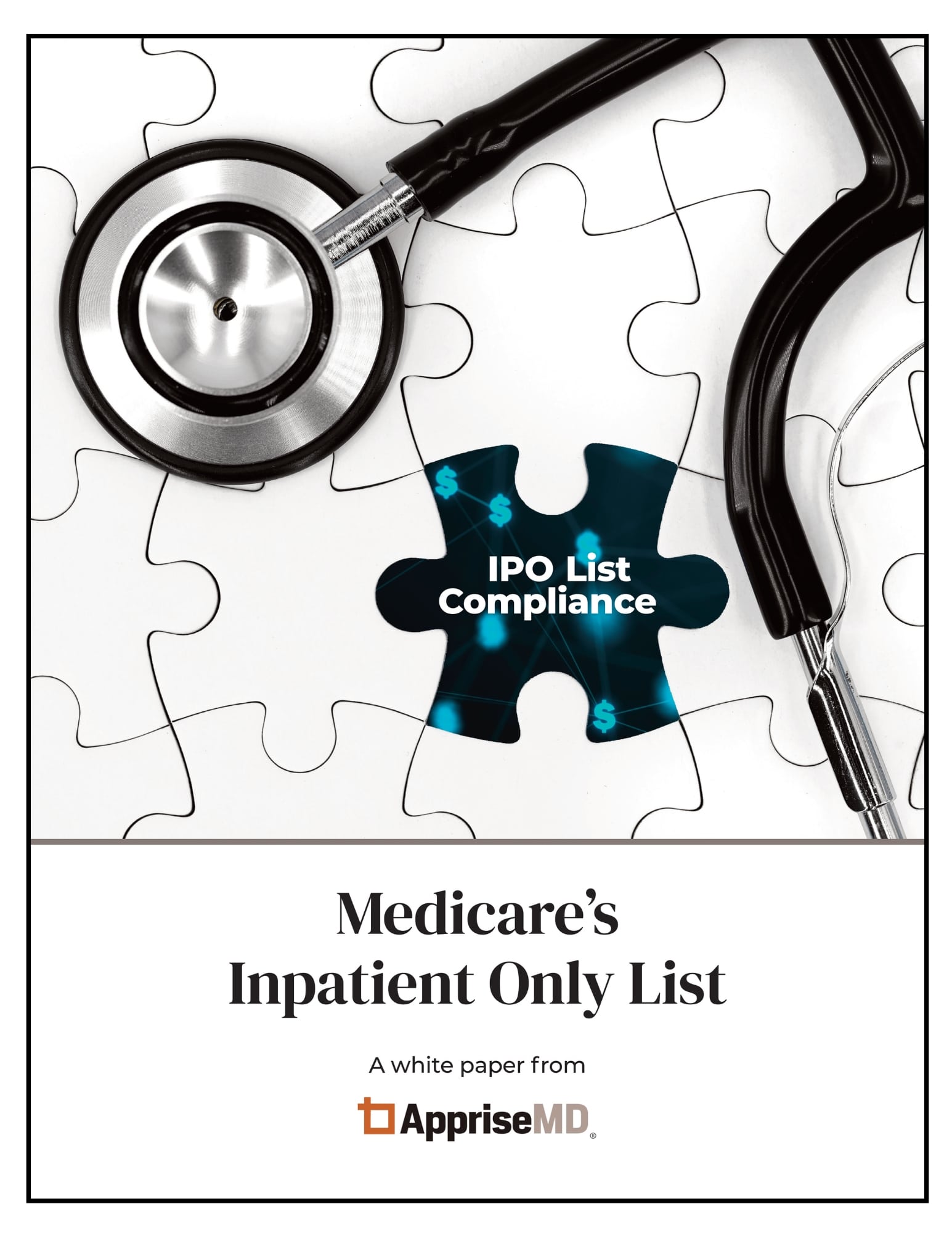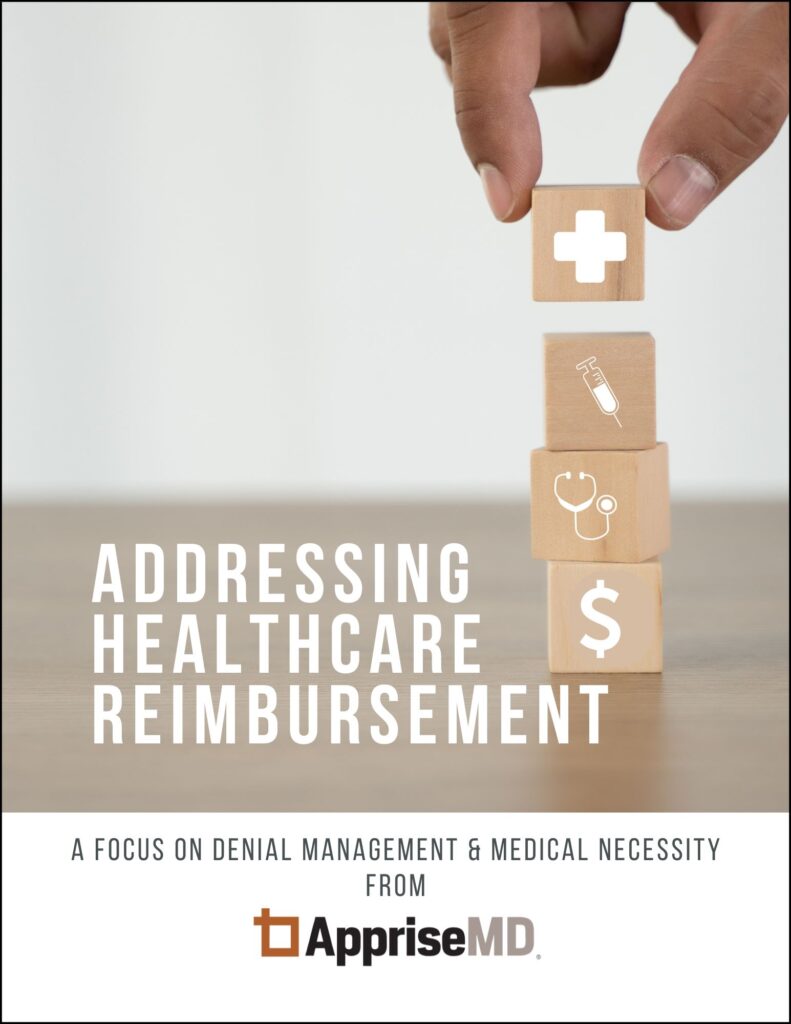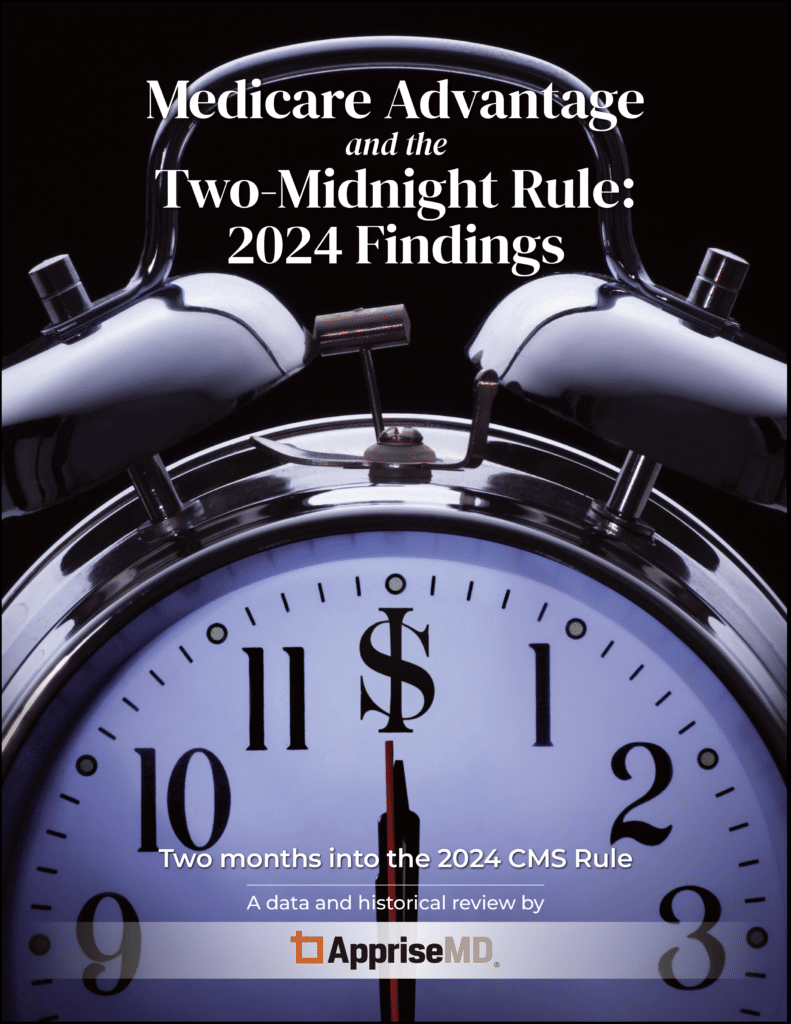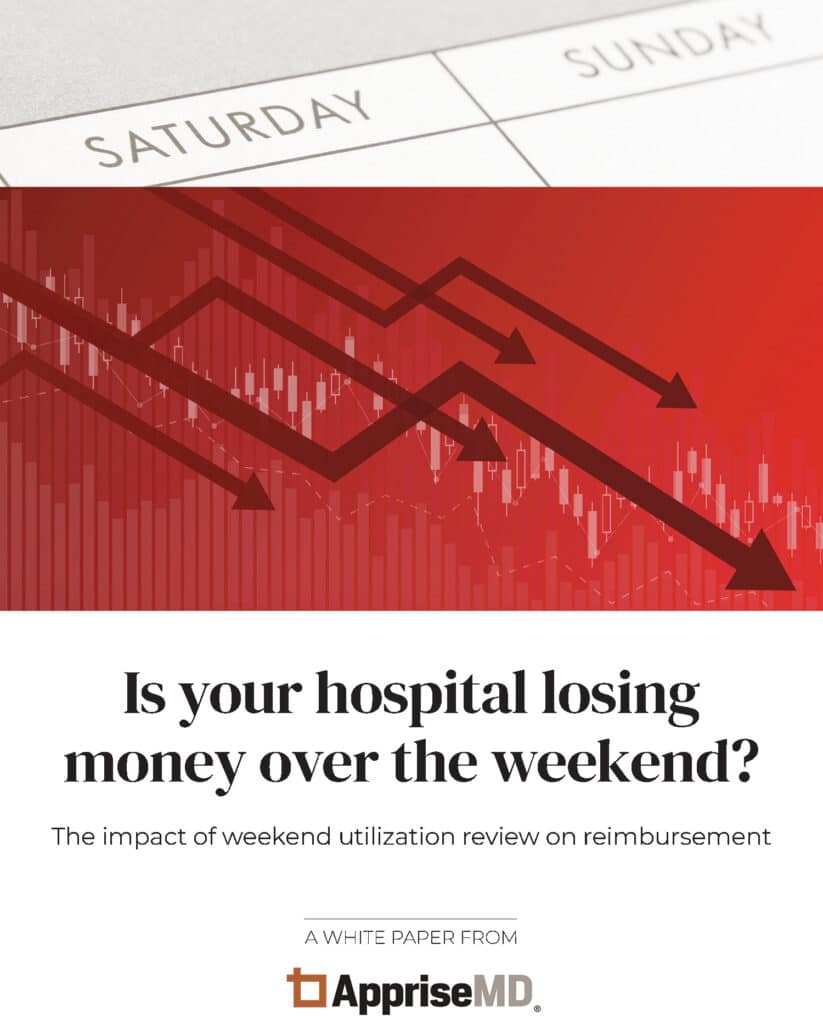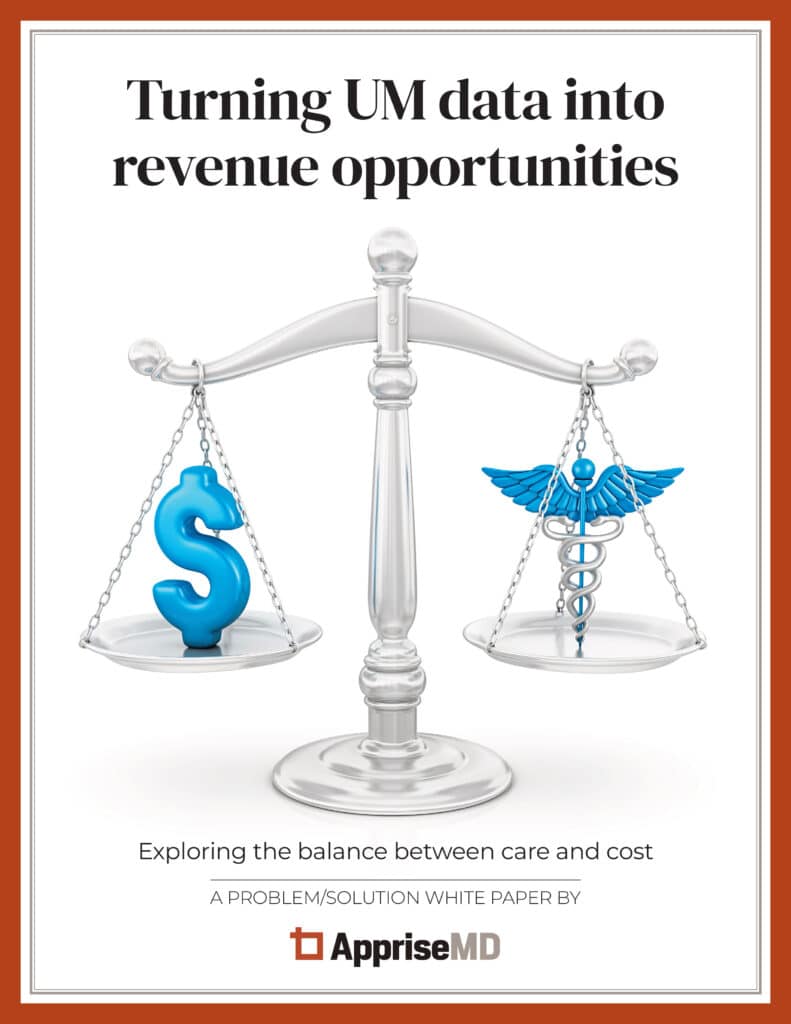A Collection of White Papers from AppriseMD
Inpatient Only List Compliance
A White Paper from AppriseMD
The often-murky waters of inpatient admission denials grow clearer under the Inpatient Only (IPO) list, which directs the level of care (LOC) for procedures covered by the Centers for Medicare & Medicaid Services (CMS) if performed in an inpatient hospital setting. The latest numbers from CMS show 68 million patients enrolled in Medicare, 50% of whom are also enrolled in Medicare Advantage plans.1
The importance of ensuring IPO list compliance swells due to the sheer number of patient procedures the list impacts and the dollars those procedures represent. An annual review of the list and its updates is a must for hospitals because they will not receive reimbursement if a procedure on the IPO list takes place in the wrong setting.
Addressing Healthcare Reimbursement
A Focus on Denial Management and Medical Necessity
The hard truth is that denials are a major pain point for all hospitals. Hospitals and health systems know this. The difficulty lies in the execution. Healthcare organizations can no longer afford to take a hit on reimbursement, therefore medical necessity determinations and denial management must become a priority.
In this review, AppriseMD looks at how hospitals can tackle barriers to reimbursement, increase the focus on medical necessity and uncover hidden factors that contribute to revenue loss.
Medicare Advantage & the Two-Midnight Rule: 2024 Findings
A Data and Historical Review
- The impetus behind the 2024 CMS final rule
- MAO market share
- The Two-Midnight rule
- CMS-4201-F key factors
- AppriseMD data examining how the new rule is being implemented
The Use of AI in Claims Denials
A Compendium of Artificial Intelligence Use in Utilization Review
Is your hospital losing money over the weekend?
The impact of weekend utilization review on reimbursement
Turning UM Data into Revenue Opportunities
Exploring the balance between cost and care
Utilization management (UM) data analysis transforms revenue cycle and care management practices, yielding greater earnings to support hospital and health system operations and sustainability while improving the timely delivery of quality care.
UM balances the delivery of the right care at the right time in the right setting. Providing the right, or medically necessary care, depends upon providing patients with treatment needed to achieve the best possible medical outcome without over- or under-utilizing services. The complexity of the cost structure in the U.S. healthcare system adds another hurdle. Even though medical necessity is the foundation upon which UM rests, it does not exist in a vacuum. It is intricately linked to cost. Achieving a utilization management balance can improve a hospital’s quality of care while at the same time reducing costs.
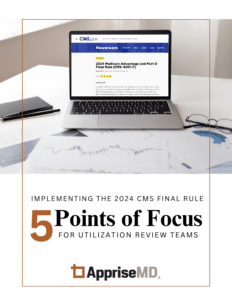
Implementing the 2024 CMS Final Rule
Five Points of Focus for Utilization Review Teams
2024 CMS Final Rule
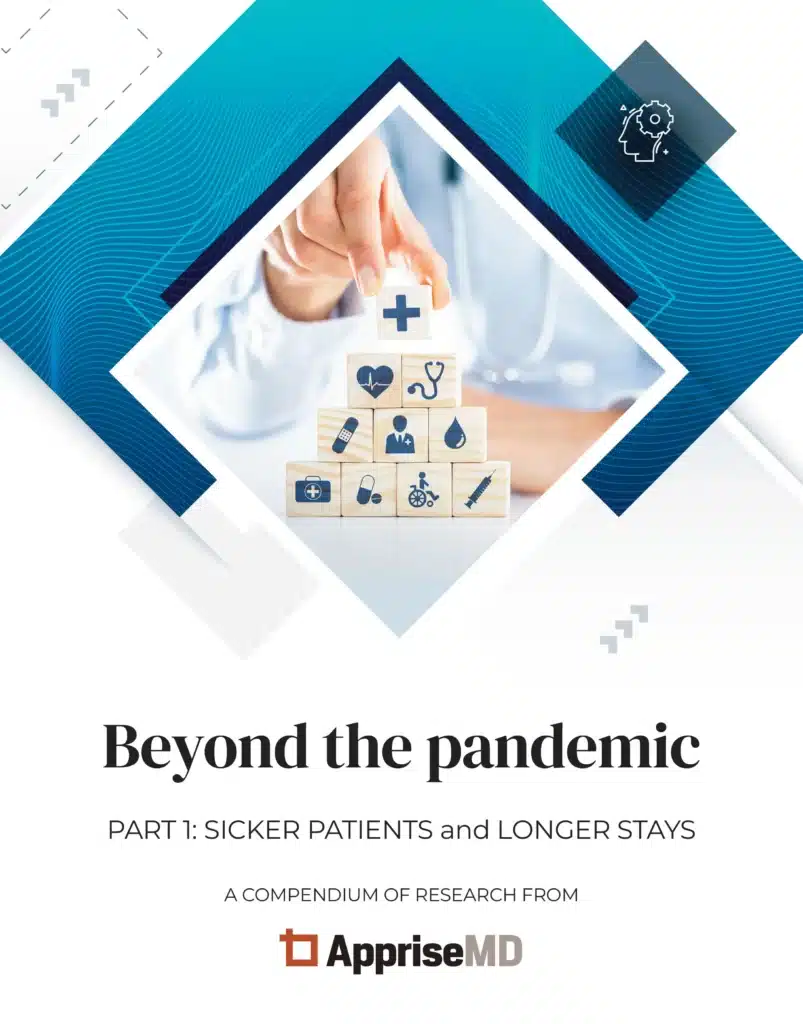
Beyond the Pandemic
Part 1: Sicker Patients and Longer Stays, a compendium of research by AppriseMD
Part 1
In 2020, hospitals encountered a crisis unlike any they had faced before. More than two years later, hospitals are still coping with the repercussions of the COVID-19 pandemic both in terms of patient volumes and financial challenges.
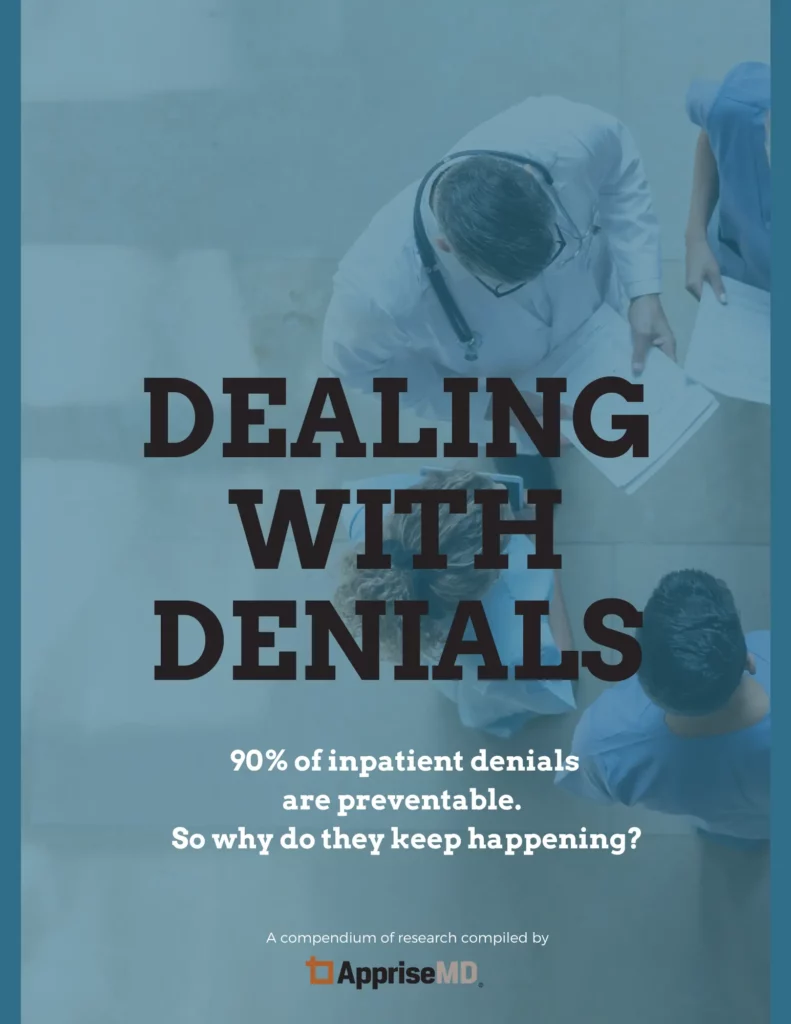
Dealing with Denials
An in-depth look at the causes of inpatient denials and what healthcare organizations can do to keep them from happening.
Read more
Ultimately hospitals and other healthcare providers can no longer ignore the impact inpatient denials can have on their cash flow. Ninety percent of all denials are preventable, so why aren’t more denials being prevented? If an organization takes a focused and unremitting approach to tackling this problem, it can see improvements in lowering denials and increasing overturned denials. This approach requires persistence and commitment to proper documentation, plus a clear utilization review strategy together with a team approach. The result will help support the financial health and future sustainability of the organization.
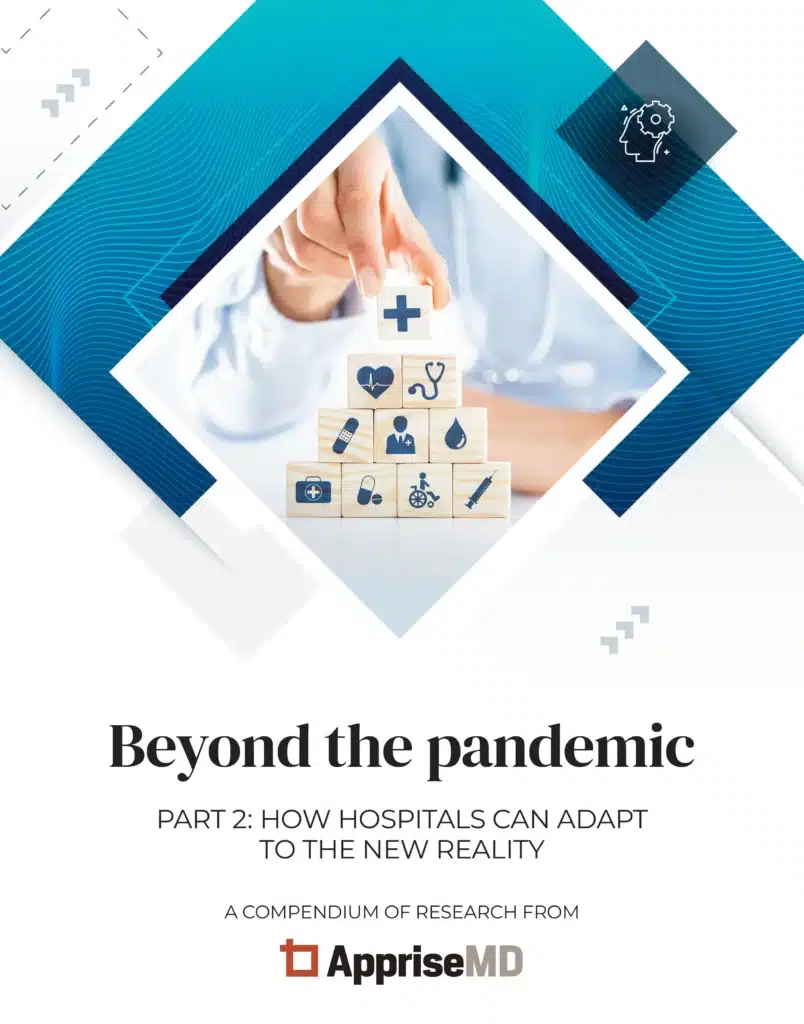
Beyond the Pandemic
Part 2: How Hospitals Can Adapt to the New Reality, a compendium of research by AppriseMD.
Part 2
In Part 2 of our compendium of research, we look at strategies to bend hospital utilization curves by right sizing length of stay as well as keys to addressing post-disc.

